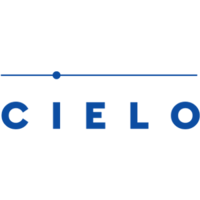Pivotal Study Reveals Effectiveness of Blood Tests in Screening for Sleep Apnea in Adult Males
BREA, Calif., June 19, 2018 /PRNewswire/ -- Beckman Coulter announced today the positive results of a clinical trial suggesting that blood tests may offer key benefits in the initial screening for obstructive sleep apnea. The study, which involved 264 male adult patients from six institutions, revealed that screening for changes in three specific biomarkers may be useful in helping to identify the often-serious disorder that affects an estimated 100 million adults worldwide. The results of the pivotal study were published in the peer-reviewed journal, Nature and Science of Sleep,(1) with the anticipation that use of these objective blood tests will improve screening accuracy and timely diagnosis as well as patient management. Beckman Coulter is the only supplier to currently offer this panel of three assays on fully automated platforms. Hemoglobin A1c (HbA1c) and C-reactive protein (CRP) are chemistry tests on the Synchron and AU systems while erythropoietin (EPO) is on the DxI and Access 2 immunoassay systems.
Approximately 34% of men and 17% of women experience sleep apnea,(2)( )a common disorder that is characterized by brief patterns of interrupted breathing during sleep. Obstructive sleep apnea occurs when the throat muscles relax and the airway becomes obstructed. The prevalence of sleep apnea is on the rise due to an aging population and increasing obesity rates; however, 90% of individuals with sleep apnea remain undiagnosed and untreated.
"The study results demonstrate that sleep apnea induces a characteristic signature cluster of blood biomarker changes," said principal investigator and lead author Wesley Elon Fleming, M.D., diplomate, American Board of Sleep Medicine and Neurology, Sleep Center Orange County, Irvine, California. "Concurrent elevations of HbA1c, CRP, and EPO levels should generate a high index of suspicion of obstructive sleep apnea, and thus, may be useful as an initial screening tool in adult males."
Jon-Erik Holty, M.D., M.S., Stanford Medical School/VA Palo Alto Health Care System, said of the study results, "The combination of these three blood tests correlates with the severity of disease, and may assist sleep centers in identifying and triaging patients for diagnosis and treatment. Undiagnosed and untreated sleep-apnea patients place a significant clinical and economic burden on the healthcare system." Tools that can help to identify patients in need of treatment in a timely manner may help to reduce that burden; however, diagnosing sleep apnea has remained a challenge, and many people with sleep apnea are unaware of its associated symptoms. This has led to the need for effective and easy-to-use screening solutions.
"Important to note is that the blood tests were superior to standard screening methods, such as the Epworth Sleepiness Scale (ESS) and STOP-Bang questionnaires in identifying obstructive sleep apnea," said Rohit Budhiraja, M.D., Harvard Medical School/Brigham and Women's Hospital. Additionally, the blood tests demonstrated superiority over the use of BMI as an indicator in non-obese patients--a significant finding, given that up to one-half of patients with sleep apnea are not obese.
Regarding the study, Edith Mensah-Osman, M.D., Ph.D., MBA, president/CEO and director of medical research at EENA Comprehensive Neurology & Sleep Center, Boynton Beach, Florida claimed, "The combination of the three identified biomarkers performed as well for asymptomatic patients as it did for symptomatic patients."
Patients with sleep apnea are at increased risk for cardiovascular disease, diabetes and other chronic conditions, so much so that the association between sleep apnea and adverse health consequences has led the American Heart Association to suggest the integration of screening for sleep apnea into routine clinical care.
"Patients at risk of sleep apnea are currently unlikely to be referred to a sleep center; only 30% of patients are cautioned about sleep apnea by their primary care provider, who is frequently the first contact for patients seeking a diagnosis," said Richard Bogan, M.D., FCCP, FAASM, of Columbia, South Carolina.
"Sleep apnea patients were found to have an increased probability of prediabetes and intermediate to high cardiovascular risk. Sleep apnea-induced hypoxemia is associated with increased EPO concentrations; hence, there is biological plausibility for including these three blood tests in the biomarker panel for sleep apnea," said Michael Samoszuk, M.D., a study co-author and chief medical officer at Beckman Coulter, the company that developed the blood tests.
"After diagnosis and treatment, improvements are observed in sleep quality, quality of life and blood pressure," said Dennis Hwang, M.D., Kaiser Permanente Sleep Center, Fontana, California, "which may reduce the risk of heart disease and chronic health conditions, and decrease healthcare utilization and cost."
References
1. Fleming WE, Holty JEC, Bogan RK, Hwang D, Ferouz-Colborn AS, Budhiraja R,
Redline S, Mensah-Osman E, Osman NI, Li Q, Azad A, Podolak S, Samoszuk
MK, Cruz AB, Bai Y, Lu J, Riley JS, Southwick PC. Use of blood biomarkers
to screen for obstructive sleep apnea. Nature and Science of Sleep (2018)
10:159-167.
2. Peppard PE, Young T, Barnet JH, Palta M, Hagen EW, Hla KM. Increased
prevalence of sleep- disordered breathing in adults. Am J Epidemiol
(2013) 177:1006-1014.
About Beckman Coulter
Beckman Coulter Diagnostics helps healthcare and laboratory professionals provide better patient care by delivering the accurate diagnostic information they need, when they need it. For over 80 years, Beckman Coulter has been the partner of choice for healthcare organizations. Our scalable instruments, comprehensive diagnostic tests and business management services are trusted by hospitals, laboratories and other critical care settings around the world. We share in our customers' mission toward continuous improvement and quality patient care because we believe when efficiency and clinical outcomes are improved, patients benefit and we can move healthcare forward for every person.
© 2018 Beckman Coulter. All rights reserved. Beckman Coulter, the stylized logo and the Beckman Coulter product and service marks mentioned herein are trademarks or registered trademarks of Beckman Coulter, Inc. in the United States and other countries.
View original content with multimedia:http://www.prnewswire.com/news-releases/pivotal-study-reveals-effectiveness-of-blood-tests-in-screening-for-sleep-apnea-in-adult-males-300668293.html
SOURCE Beckman Coulter Diagnostics



